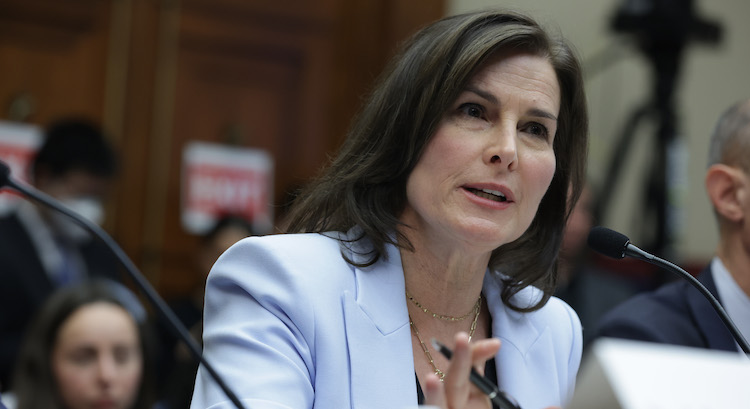When the Trump administration accused Columbia University of violating the civil rights of its Jewish students, the school risked losing both its federal funding and even its accreditation. At the time, the preferred outcome for everyone seemed to be to have both sides come to an agreement that would alleviate the government’s concerns and reinstate Columbia’s funding.
Now, however, it’s not clear at all that the university can be trusted to negotiate a deal. Nor is it clear that whoever speaks for Columbia today will still be speaking for Columbia tomorrow or next week. It might be time to step back and have Columbia get its house in order before resuming talks.
In late March, Columbia agreed to terms laid out by the federal government in order to have $400 million of federal funding restored. Immediately the faculty and students pushed back on interim President Katrina Armstrong, who had taken over for Minouche Shafik in August. Armstrong wavered. She is no longer the president of Columbia.
Claire Shipman is, having become the institution’s third president in a period of seven months. Last month, Shipman was notified that the school’s accreditation was under review thanks to Columbia’s refusal to reform its practices to bring them in line with federal civil-rights law. Welcome to the big leagues, Claire Shipman.
Before accepting the divine punishment of being made president of Columbia, Shipman was its trustee board’s co-chair, so she isn’t new to this particular fight. In fact, Shipman appeared alongside Shafik and other school officials to testify at an April 2024 congressional hearing on campus anti-Semitism. Both Shafik and Shipman were very, very sad about what was happening to Jews on their campus under their watch. Meanwhile, as soon as Shafik and Shipman and Co. shipped off to Capitol Hill, the student body left behind in Morningside Heights built a tentifada encampment in defiance of Shafik’s expressed conciliation.
At that April 2024 hearing, Shipman had said: “We have a moral crisis on our campus.” She wasn’t wrong. But Shipman was part of that moral crisis. Just three months before that hearing, Shipman had argued in a text that “We need to get somebody from the middle east [sic] or who is Arab on our board. Quickly I think. Somehow.”
As the Free Beacon reported yesterday, Shipman had a plan to achieve that “somehow.” The board could get rid of Shoshana Shendelman, a Jewish trustee who’d been outspoken against anti-Semitism on campus. Shipman told a fellow board member, “I just don’t think [Shendelman] should be on the board” and agreed with that board member’s characterization of Shendelman as “a mole.” Shipman declared herself “so, so tired” of Shendelman.
There was another recent piece of news about Columbia that isn’t about anti-Semitism but nonetheless cannot be ignored when considering the state of the institution. In 2022, Columbia managed to get the No. 2 spot on the US News & World Report college rankings. A mathematician at the school analyzed the data and found that the school had misled the publication. When the accurate data was factored in, Columbia dropped to No. 18. The following year, the school declined to participate in the rankings.
“Columbia did report false data over many years, and it reported false data about several things,” that mathematician told the New York Times on Tuesday.
The university has now settled a lawsuit brought by students claiming the inflated rankings amounted to tuition fraud.
Honest question: What is going on at Columbia? A series of interim presidents presiding over multiple lawsuit settlements while, in the case of the civil-rights violations, continuing to practice the proscribed behavior. Here was Shipman’s attempt at an apology for trying to purge the board of those supportive of Jewish rights: “The things I said in a moment of frustration and stress were wrong. They do not reflect how I feel. I have apologized directly to the person named in my texts, and I am apologizing now to you.”
Over the past year, none of the three Columbia presidents appeared to have strong backing among the faculty, and we know there was infighting within the board of trustees itself. The students, especially the pro-Hamas protest groups on campus, have quickly undermined any promise of lawfulness at Columbia.
It’s clear that an interim presidency of turn-taking officials is insufficient. Perhaps a deal will be possible once the university has a leader who doesn’t say one thing in public and another in private.


















